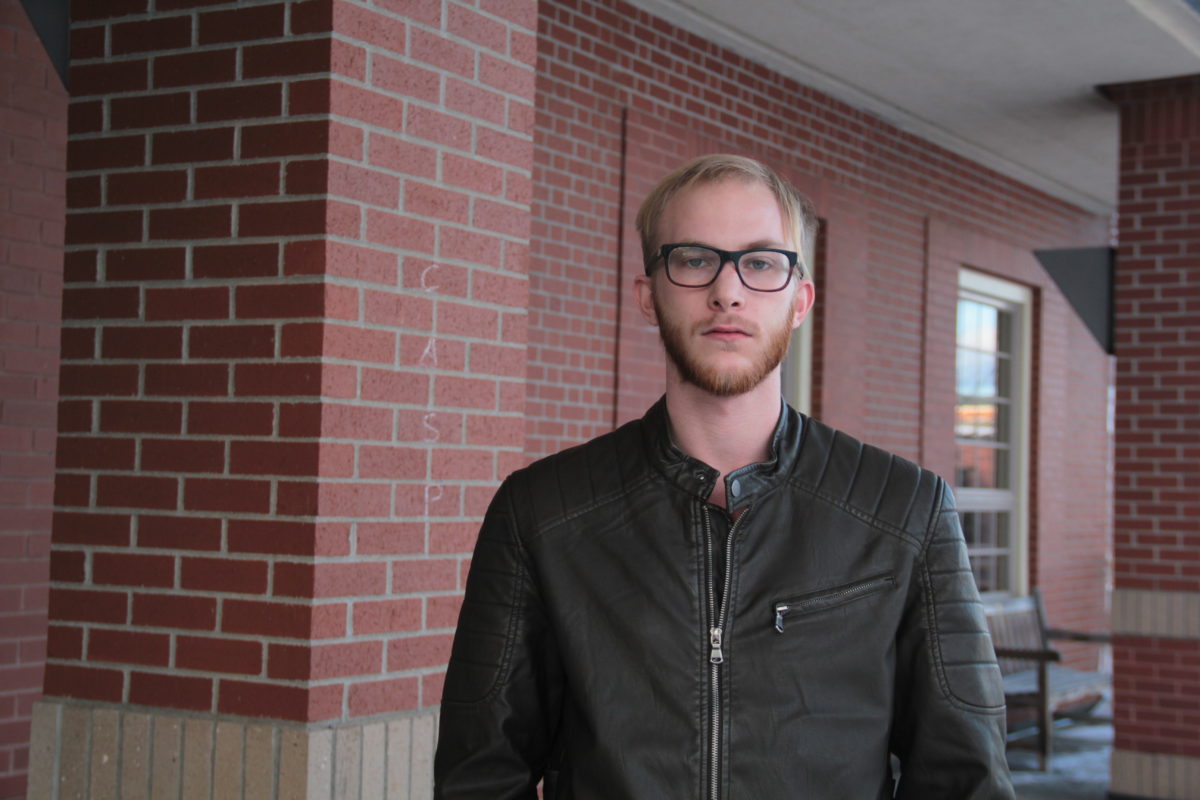A St. Thomas University student is fighting against the Health Canada policy prohibiting men who have had sex with men within the last five years from donating organs.
Kody Carlson, a social work student, said his grandfather is ill and needs part of a new liver. Carlson said he’s a perfect candidate to donate – young, healthy and a male relative – but the policy is getting in the way.
“There’s an understanding, I think, in the government, perhaps, that all gay people have AIDS, which is not true, and it comes from the fear that resulted from the AIDS crisis in the ‘70s and ‘80s,” he said.
“But we know that that’s no longer the disease that it used to be … I think that those policies are outdated and still ridden with homophobia and heterosexism.”
The number of new HIV infections has been reduced by more than two thirds since the height of the epidemic in the mid-1980s.
The United Nations’ 2016 Global AIDS Response Progress Report said, “Gay men and other men who have sex with men (MSM) continue to make up the largest group among those newly infected” with approximately 54 per cent of all new HIV infections in Canada in 2014.
Anna Maddison, Health Canada’s senior media relations advisor, said everyone can be considered for organ donation in Canada. She said no regulations or programs will prevent any Canadian from becoming a donor based on gender, race, age or sexual orientation.
“Donors are assessed for a variety of risk factors (including MSM activity within the past 5 years) connected with the incidence of infectious disease transmission,” she said in an e-mail statement.
“If a potential donor has a risk factor, the regulations allow for their organs to be used based on the judgement of the transplanting physician and with the informed consent of the recipient.”
Maddison said this policy is included in the Safety of Human Cells, Tissues and Organs for Transplantation Regulations due to the life and death circumstances which make transplantation the only option for a patient, as well as the limited number of donors available.
Carlson is also the New Brunswick representative for the federal LGBT Commission for the New Democratic Party. He said he believes laws directed towards the prevalence of this disease in the queer community stem from having a government “full of people who hold a lot of privilege.”
“Heterosexual privilege, white male privilege, people who haven’t lived otherwise, and so that influences the amount of straight supremacy that comes through the policies that we have in different areas of health care in Canada,” he said.
Carlson has written letters to the likes of Canadian Blood Services, Health Canada and politicians like Fredericton MP Matt DeCourcey. However, he said responses have been repetitive and unhelpful.
“They say, ‘I’m sorry about your grandfather,’ then they remind me of how far we’ve come with the blood donation [policy] with it being reduced from five years to one year,” he said.
“And then they say that it’s not a homophobic policy because it’s not against gay people because gay people can sign up to donate, it’s just against men who’ve have sex with men in the last five years, so as long as you’re a celibate gay person, then, in their eyes, it’s not homophobic.”
In a statement, DeCourcey said he knows the importance of LGBTQ issues and is proud of the work being done on a federal level to promote equal rights of LGBTQ people in the community.
He also said he’s come to understand medical factors involving both the patient and donor are of primary consideration to health care providers.
“Regarding the MSM blood deferral policy, I was pleased to see the deferral period reduced from five years, to one year by our government,” DeCourcey said.
“This decision is a responsible next step in updating Canada’s donor eligibility criteria for MSM. Health Canada is open to considering further changes to the current MSM donor deferral policy, while ensuring we protect Canada’s blood system.”
DeCourcey said the federal government has allocated $3-million to fund behavioural research, organize an international seminar to discuss blood donor policy and encourage further development of technologies.
The policy also temporarily bans women who have sex with MSM from donating organs.
Carlson suggested if the government is worried about HIV and AIDS, it could publicly fund a drug like PrEP (Pre-Exposure Prophylaxis), an FDA-approved anti-HIV medication that keeps HIV-negative people from becoming infected.
“It’s a pill, kind of like birth control, and this pill, once a day, prevents HIV. So, if we publicly funded a pill that could prevent HIV by taking it once a day, we could eradicate the disease eventually,” Carlson said.
Carlson said “concerns about HIV are sort of a way of veiling the homophobic policy” and such policies are reactive, not proactive.
“Assuming that gay men have higher instances of HIV – which depends on the statistics that you’re reading – we’re reacting by banning them from donating blood and organs,” he said.
“But a proactive strategy would be funding PrEP to have everybody be able to access [it] regardless of their gender or sexual orientation … then zero discordant couples would have to worry about acquiring HIV and we also wouldn’t have to worry about it contaminating our blood and organ supply as much.”
Doctors can make an exception to the policy so long as both they and the patient consent. Carlson said considering the statistics on the treatment of LGBTQ people in health care, he is not confident this would happen for him.
Carlson said his family is now considering all options and seeing who else might be available to donate. He said he has received an overwhelming amount of support, making it clear that many people “vehemently disagree with this outdated law.”
“We’re trying to protect the health of Canadians, and protecting the health of Canadians doesn’t include excluding people from being able to donate blood and organs.”

